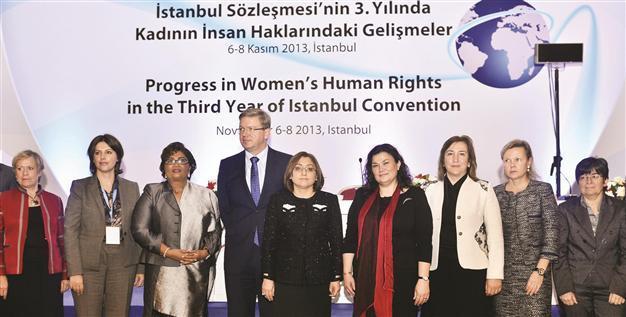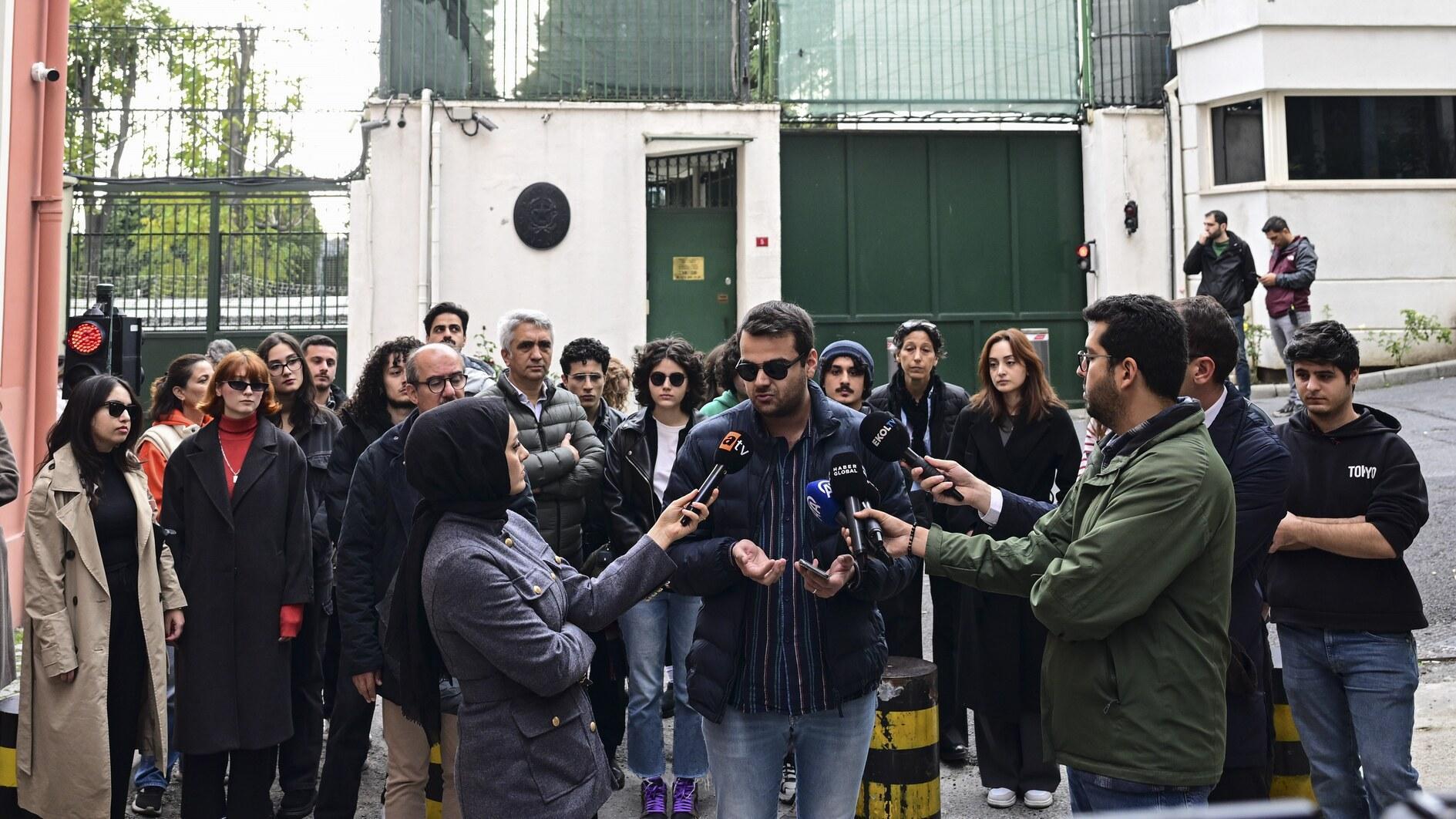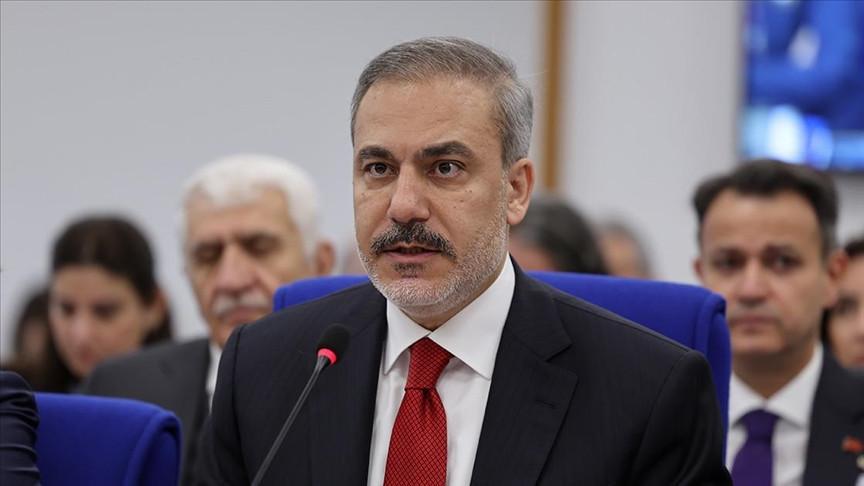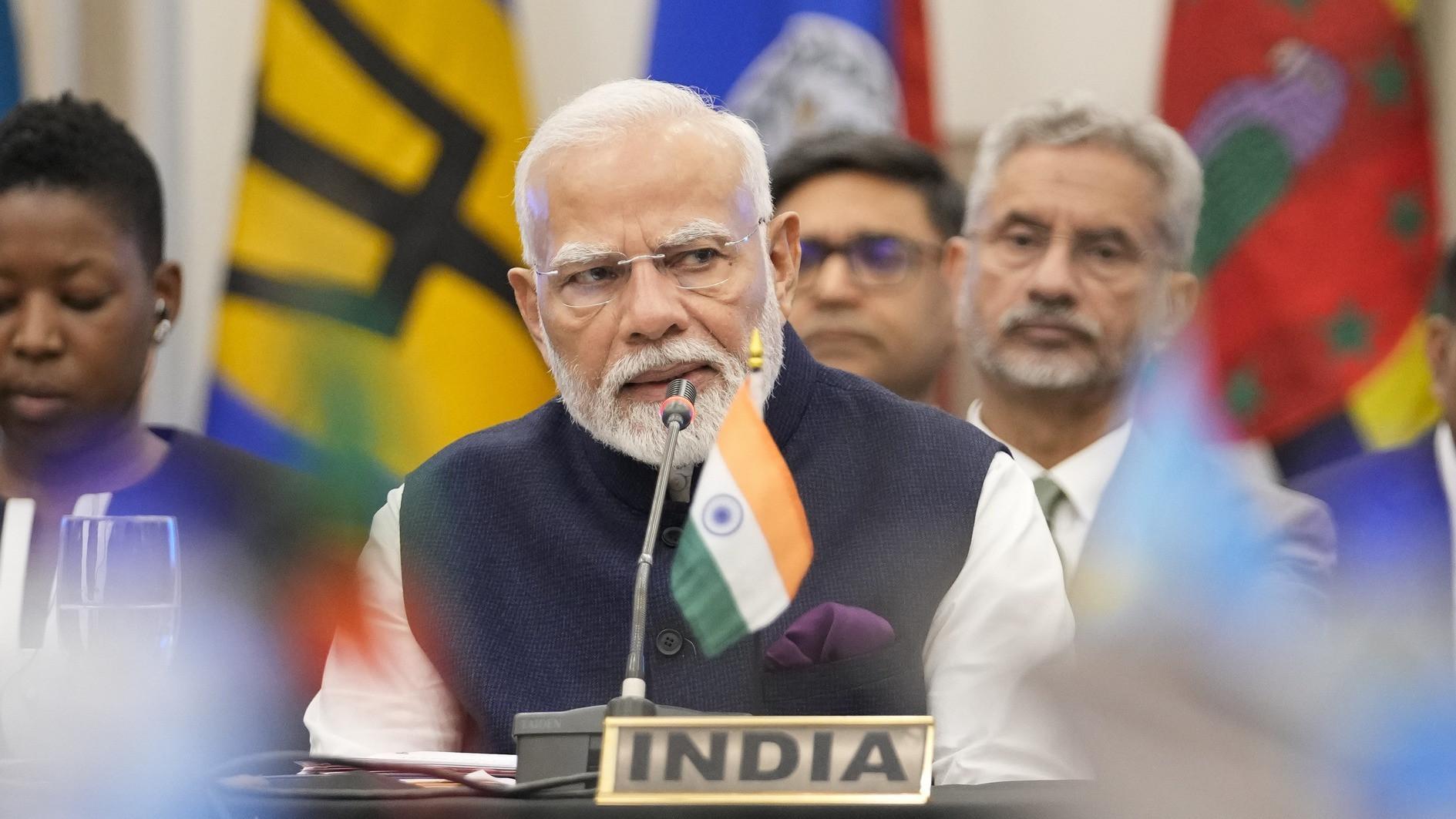Be tougher in women’s issues, EU commissioner tells Turkey
ISTANBUL

The European Union (EU) Commissioner for Enlargement and Neighborhood Policy Stefan Füle (4rd L) and Turkish Family and Social Affairs Minister Şahin (C) pose after yesterday’s conference. AA photo
Stefan Füle, the European Union (EU) commissioner for enlargement and neighborhood policy, has called on Turkey to gear up its efforts to reduce gender inequality in the country, particularly in the political field which lacks a strong female presence.“We invite Turkey to endorse the targets of the Europe 2020 strategy, and to further empower women to participate more actively in politics, to have increased access to education and be more actively involved in the labor market,” he said, speaking at a meeting held on the issue attended by Family and Social Policies Minister Fatma Şahin in Istanbul yesterday.
Şahin, who also had a one-on-one meeting with Füle before the meeting, said the country’s battle with gender inequality was a long-running one, vowing to keep making women lives’ better as the center of the government’s policies. “We refuse all kinds of discrimination. We have internalized a management understanding that puts the woman at the center, that improves the quality of a woman’s life and stands beside the woman in her dignified struggle for life. And we took this as a roadmap,” she said.
Şahin also stressed the government had three priorities regarding the issue: equal access to education, health and workforce.
However, a point that was not addressed by Şahin, women’s participation in politics, was the issue most strongly emphasized in Füle’s speech.
Addressing women who gathered to discuss the level of progress in women’s rights on the third year of the Istanbul Convention, known as the Council of Europe Convention against Domestic Violence, Füle underscored that the country was lagging behind its EU member counterparts in women’s representation at all levels, despite the limited progress.
“First, Turkey needs to make sustained efforts to increase women’s political representation,” he said.
“In the 2011 elections, women’s participation in parliament increased approximately from 9 percent to 14 percent of its membership. This is still about a half of the European Union average,” he said.
Füle asserted encouragement of women’s presence in local governments required extra attention as only 1 percent of the municipalities in the country had a female mayor.
Moves promising: Füle
According to the EU commissioner, Turkey has a better-looking performance in involving more women in education especially since 2010, but regional gaps remained at worrying levels.
“The gender gap in access to education is narrowing but it remains sizeable in some regions, especially in the Southeast. Female early school leaving rate remains high, still four times higher in Turkey than in the European Union,” he said.
Meanwhile in terms of labor policies, the country’s focus should be on improving women’s employment in rural areas, while holding on to policies to raise their participation in the workforce around 30 percent across the country, Füle stressed.
However, the commissioner did not paint Turkey’s gender equality performance in an entirely negative light.
Hailing the adoption of the Law on the Protection of Family and Prevention of Violence in March of last year, he said; “Recent developments in your country show what can be achieved with political will, courage and dialogue.”
Naming a few such developments, he said the fourth judicial reform package adopted in April, ongoing efforts to reach a solution of the long-lasting Kurdish issue and an array of reforms announced as the “democracy package,” demonstrated the progress.
















